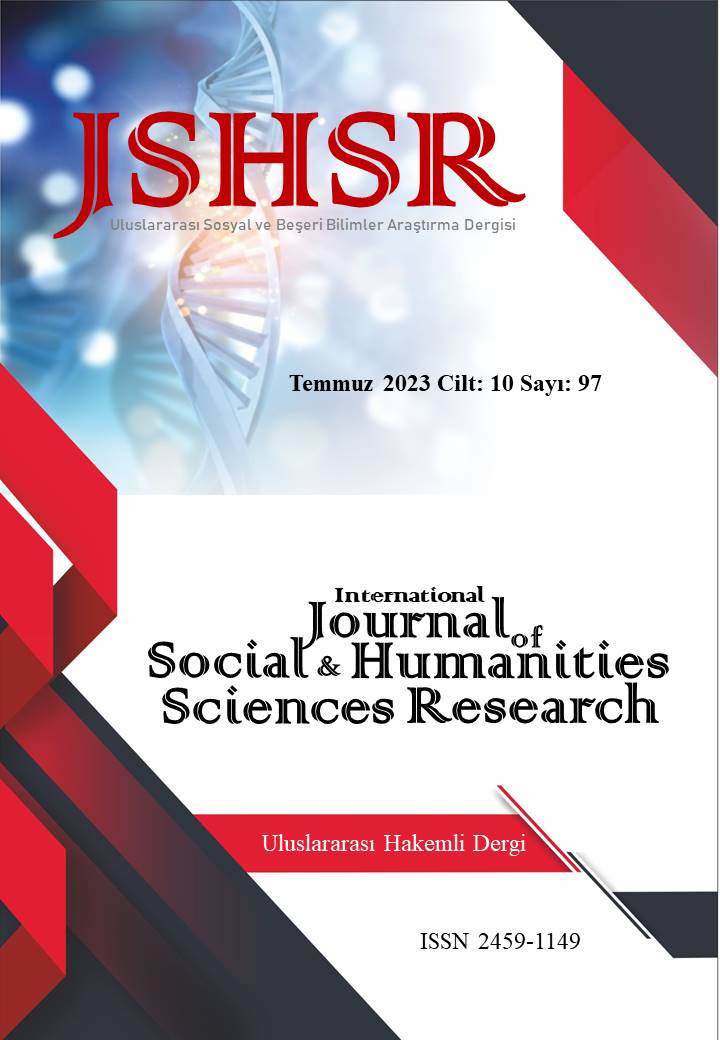Investigation of Reading Habits of Secondary School Students
DOI:
https://doi.org/10.5281/zenodo.8196753Keywords:
Reading Habits, Student, Secondary SchoolAbstract
Reading is an action that people have been doing since the invention of writing. People increase and update their knowledge by reading, and they put their knowledge, impressions, and experiences into writing and present them for the reading pleasure of other people. Reading is extremely important to understand the message that someone else wants to convey to the reader. Reading habits are an important form of behavior that individuals acquire throughout their lives. Especially secondary school period is accepted as a critical period in which students' reading habits are formed and developed. Therefore, examining the reading habits of secondary school students is of great importance for educators and researchers. In this study, the "Attitude Scale on Book Reading Habit" was used to examine the reading habits of secondary school students. The scale includes 30 attitude statements with 6 factors (love, habit, necessity, desire, affect, benefit), 21 of which are positive and 9 of which are negative. The scale was applied to students in a secondary school with 350 students. This study aims to examine the reading habits of secondary school students and present important findings. The results of the study will provide valuable information for school administrators, teachers, parents, and other stakeholders and will contribute to the determination of strategies to support the reading habits of secondary school students. Examining the reading habits of secondary school students is of great importance to improve the reading culture of young people and to make positive contributions to their educational lives. In conclusion, this study showed that secondary school students' attitudes toward reading habits are generally positive. It was observed that students liked reading books, believed that reading books improved their imagination, and thought that reading books provided them with many benefits. These findings emphasize that students tend to read books willingly and that reading books contributes to their personal development.
References
Aksoy, T. (2018). Okuma alışkanlığının temel eğitimden ortaöğretime geçiş (TEOG) sınavına etkisi. [Yüksek lisans tezi], Gazi Üniversitesi, Ankara.
Akyol, H. (2003). Türkçe İlkokuma Yazma Öğretimi., Gündüz Eğitim Ve Yayıncılık.
Baki, Y. (2019). 6. 7. ve 8. sınıf öğrencilerinin okuma kaygılarının Türkçe dersine ilişkin tutumları üzerindeki etkisinde sınıf düzeyinin ve cinsiyetin rolü. Hacettepe Üniversitesi Eğitim Fakültesi Dergisi, 34(1), 218-241.
Demirel, Ö. (1999). Türkçe Öğretimi. Pegem A Yayınları.
Durualp, E., Durualp, E. ve Çiçekoğlu, P. (2013). 6-8. sınıftaki öğrencilerin okumaya ilişkin tutumlarının bazı değişkenler açısından incelenmesi. Çankırı Karatekin Üniversitesi Sosyal Bilimler Enstitüsü Dergisi, 4(1), 159-174.
Gömleksiz, M.N. (2004). Geleceğin öğretmenlerinin kitap okumaya ilişkin görüşlerinin değerlendirilmesi. Fırat Üniversitesi Sosyal Bilimler Dergisi, 14(2), 185-195.
Güneş, F. (2009). Türkçe Öğretiminde Günümüz Gelişmeleri ve Yapılandırıcı Yaklaşım/The New Developments In Teaching of Turkish and Constructivist Approach. Mustafa Kemal Üniversitesi Sosyal Bilimler Enstitüsü Dergisi, 6(11), 1-21.
Kaptan, S. (1998). Bilimsel araştırma ve istatistik teknikleri (Geliştirilmiş 11. Baskı). Tekışık Web Ofset.
Karasar, N. (2009). Bilimsel araştırma yöntemi. Nobel Akademi Yayıncılık.
Katrancı, F. (2019). Ortaokul 5. sınıf öğrencilerine uygulanan okuma etkinliklerinin öğrencilerin okuma alışkanlıklarına etkisi. [Yüksek lisans tezi], Kilis 7 Aralık Üniversitesi, Kilis.
Koç, S. & Müftüoğlu, G. (2008). Dinleme ve okuma öğretimi. AOF. www. aof. anadolu. edu. tr/kitap. IOLTP/2277/unite04. pdf
Körkuyu, S. (2014). Okuma kültürü edindirme sürecini etkileyen temel değişkenlerin incelenmesi. [Yüksek lisans tezi], Ankara Üniversitesi, Ankara.
Manguel, A. (2010). Okumanın Tarihi. (çev. Füsun Elioğlu). Yapı Kredi.
Öztürk, D. S., & Aksoy, E. (2016). İlköğretim Öğrencilerinin Okuma Alışkanlığına İlişkin Veli Görüşleri. Abant İzzet Baysal Üniversitesi Eğitim Fakültesi Dergisi, 16(2), 562-591.
Saracaloğlu, A. S., Karasakaloğlu, N., & Aslantürk, U. E. (2010). Sınıf Öğretmeni Adaylarının Okuma İlgi Ve Alışkanlıklarının Karşılaştırılması (Adnan Menderes ve Uludağ Üniversiteleri Örneği). Çukurova Üniversitesi Sosyal Bilimler Enstitüsü Dergisi, 19(3), 457-480.
Tazebay, A. (1995). İlkokul 3. ve 4. sınıf öğrencilerinin okuma becerilerinin okuduğunu anlamaya etkisi. [Yayınlanmamış Doktora Tezi] Hacettepe Üniversitesi.
Ungan, S. (2008). Okuma alışkanlığımızın kültürel altyapısı. Gaziantep Üniversitesi Sosyal Bilimler Dergisi, 7(1), 218-228.
Wittrock, M. C. (1981). Reading comprehension. Neuropsychological and cognitive processes in reading, 229-259.
Yılmaz, B. (1993). Okuma Alışkanlığında Halk Kütüphanelerinin Rolü. Kültür Bakanlığı, Kütüphaneler Genel Müdürlüğü Yayınları.
Downloads
Published
How to Cite
Issue
Section
License
Copyright (c) 2023 INTERNATIONAL JOURNAL OF SOCIAL HUMANITIES SCIENCES RESEARCH

This work is licensed under a Creative Commons Attribution 4.0 International License.


